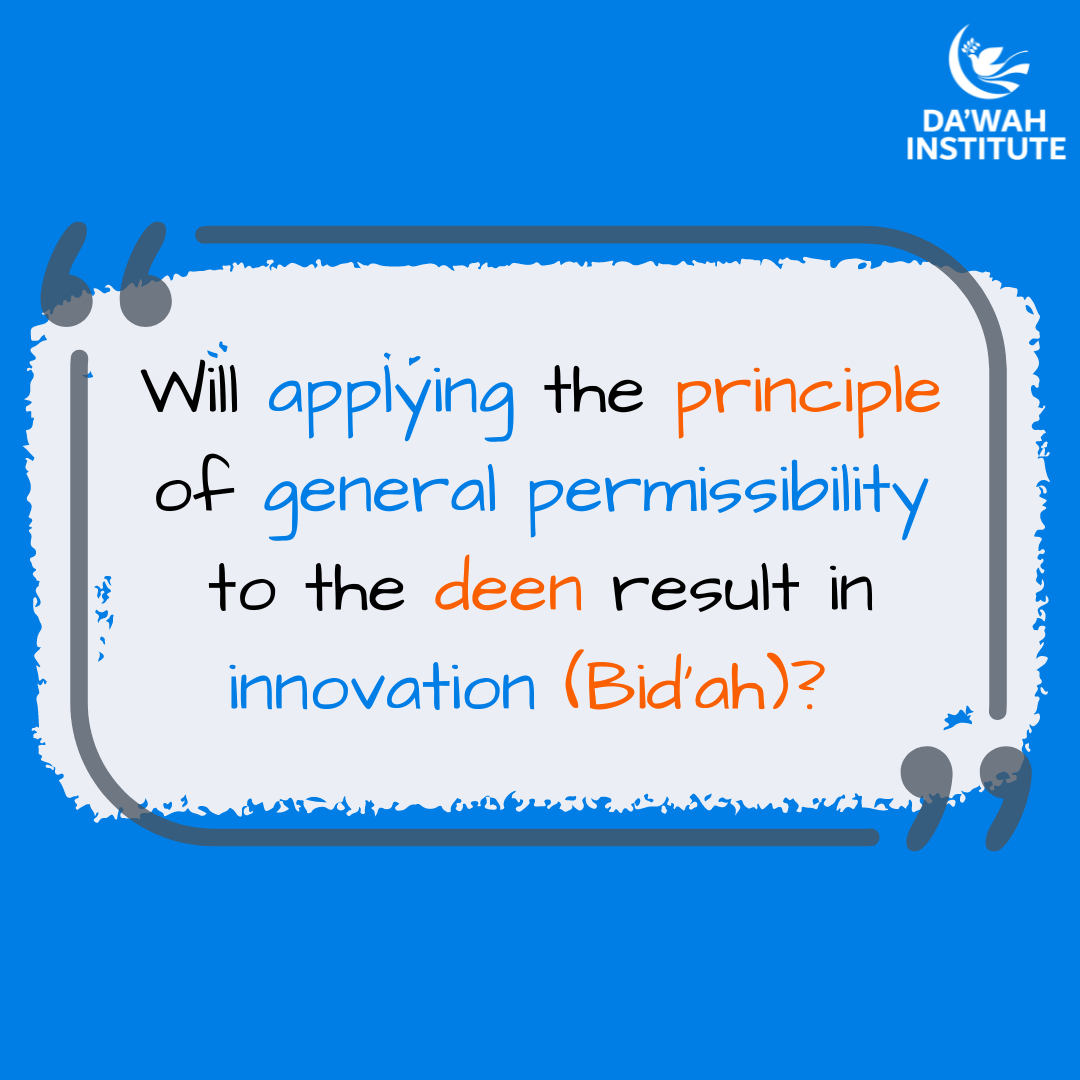
The lexical meaning of bid’ah in the Arabic language is “novelty”, “innovation”, “creativity”, “newness” or “origination”. Its technical meaning, however has been a subject of diverse opinions among Muslim scholars.
The technical definition of bid’ah, from the perspective of those who hold this opinion is a term that is not applied to innovations in mu’amalat. It applies only to deen – ibadah or aqidah, and is never good irrespective of the motive. This approach regards the idea of “good bid’ah” as a contradiction in terms. Acceptable innovations and creativity in mu’amalat and adat (or dunya matters) are usually regarded to as being part of “public interest” and “common good” (maslaha), or “juristic interest/discretion” (istihsan).
Holders of this view would therefore object to any form of collective dhikr after prayers (salat) if done as an act of ibadah since it was not done in the Sunnah. If the same action is done purely for the sake of teaching children or educating people on how to recite various forms of dhikr or du’a, as taught by the Sunnah, then it would be permissible, because teaching is mu’amalat and not ibadah. Similarly, fasting for a whole month outside Ramadan or for a whole week would be deemed objectionable as there is no text showing that the Prophet or his Companions did such an ibadah.
While some of these scholars may not object to a person performing some devotional acts if they so please on an ad hoc basis, the moment these acts are given a regular or fixed time, place, number, unique manner of performance or wording, they would be regarded as bid’ah, even if (in the view of some scholars) they appear to be mu’amalat. The very fact that they are “ritualized” turns them into acts similar to ibadat and are thus treated as such.
In fact, according to Ibn Taimiyyah, “Shirk enters into every devotional act (ibadah) that God does not permit.” Ibn Taimiyyah, Iqtida’, Vol.2, p.86.
From this perspective, all acts of ibadah should be left alone as they were by the Prophet (p) and his Rightly-guided Successors, without “excess baggage”. It holds that what the Prophet (p) left behind should be sufficient for all sincere believers; the deen is perfect and complete! Therefore, any addition to ibadah is superfluous and unnecessary even if it may be rationally justifiable. It is (in this view) better to shut the door on “good innovations” or creativity in ibadah so as not to blur the line between guidance and misguidance in ibadat.
The central problem with bid’ah from this paradigm appears to be that it represents a misguided attempt to gain closeness to Allah by means that Allah did not legislate.
Aslam Farouk-Alli’s “Translator’s Introduction” to Muhammad Al-Ghazali, Within the Boundaries of Islam: A Study on Bid’a, Islamic Book Trust, Kuala Lumpur, 2010, p.xxxiii.





